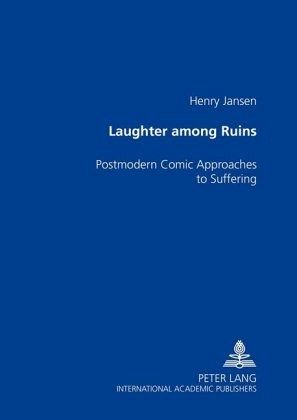Nicht lieferbar

Laughter among the Ruins
Postmodern Comic Approaches to Suffering. Dissertationsschrift
Versandkostenfrei!
Nicht lieferbar
Contemporary, postmodern secularized society has largely abandoned the central religions narratives that helped people to deal with such basic questions as the meaning of life, the experience of transcendence, suffering. The issues, however, remain und thus the question: What stories do we tell today to help us process the suffering that we undergo?In this book the author looks at the stories that our contemporary society offers to deal with suffering. The general story the Christian tradition has told has often been interpreted as a comic one, one in which the hope of reconciliation and re-cr...
Contemporary, postmodern secularized society has largely abandoned the central religions narratives that helped people to deal with such basic questions as the meaning of life, the experience of transcendence, suffering. The issues, however, remain und thus the question: What stories do we tell today to help us process the suffering that we undergo?
In this book the author looks at the stories that our contemporary society offers to deal with suffering. The general story the Christian tradition has told has often been interpreted as a comic one, one in which the hope of reconciliation and re-creation is expressed. But how does a secularized society deal with this issue? The author explores the works of four contemporary comic novelists: Iris Murdoch, John Irving, Cees Nooteboom, and Anne Tyler. He examines their worldviews as presented in their novels in order to understand how our secularized Western society deals with suffering. In the end he offers a critical evaluation of their views, acknowledging their strengths and points from which Christian theology can learn but also pointing out how differences from a Christian point of view.
In this book the author looks at the stories that our contemporary society offers to deal with suffering. The general story the Christian tradition has told has often been interpreted as a comic one, one in which the hope of reconciliation and re-creation is expressed. But how does a secularized society deal with this issue? The author explores the works of four contemporary comic novelists: Iris Murdoch, John Irving, Cees Nooteboom, and Anne Tyler. He examines their worldviews as presented in their novels in order to understand how our secularized Western society deals with suffering. In the end he offers a critical evaluation of their views, acknowledging their strengths and points from which Christian theology can learn but also pointing out how differences from a Christian point of view.



